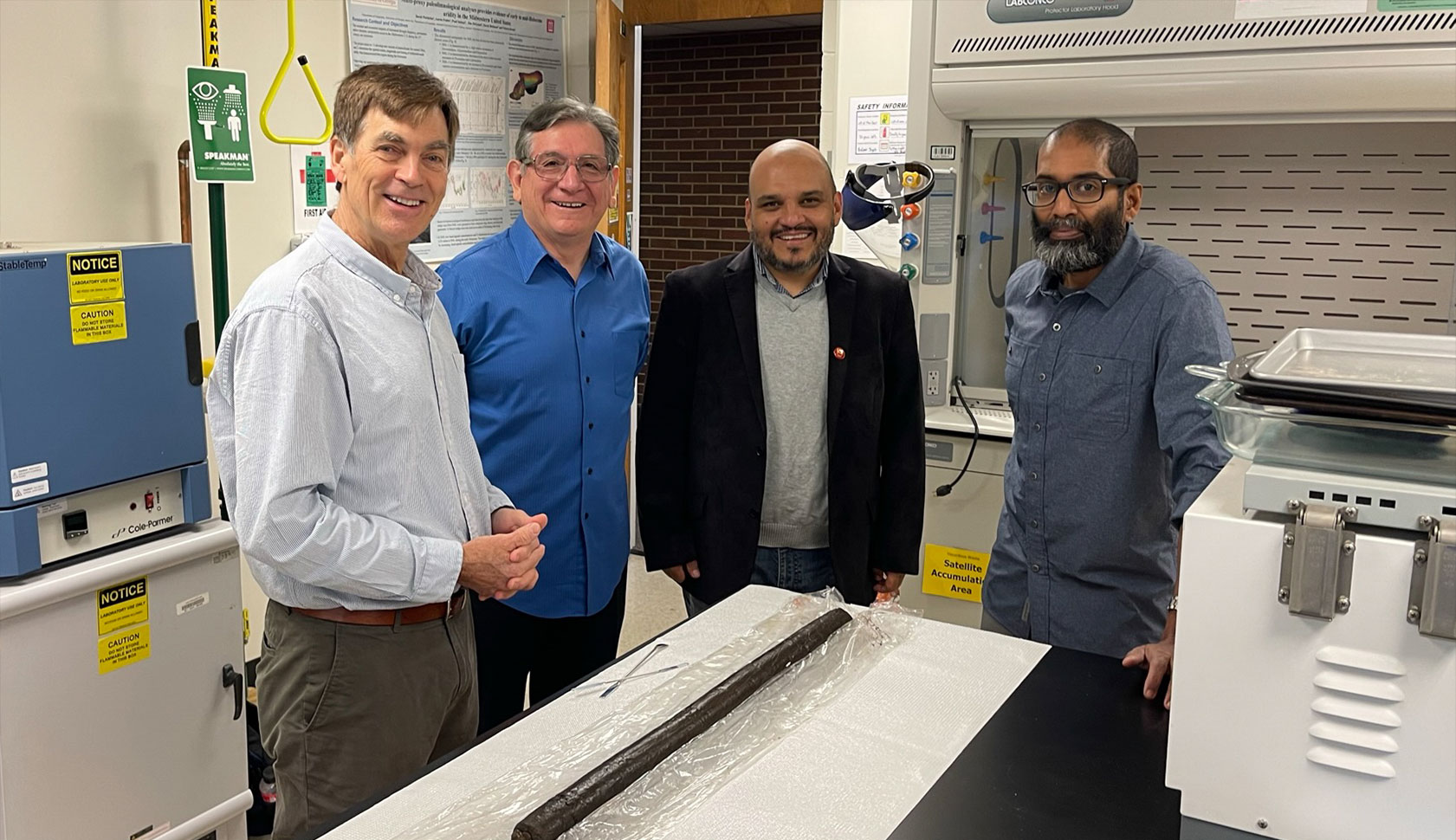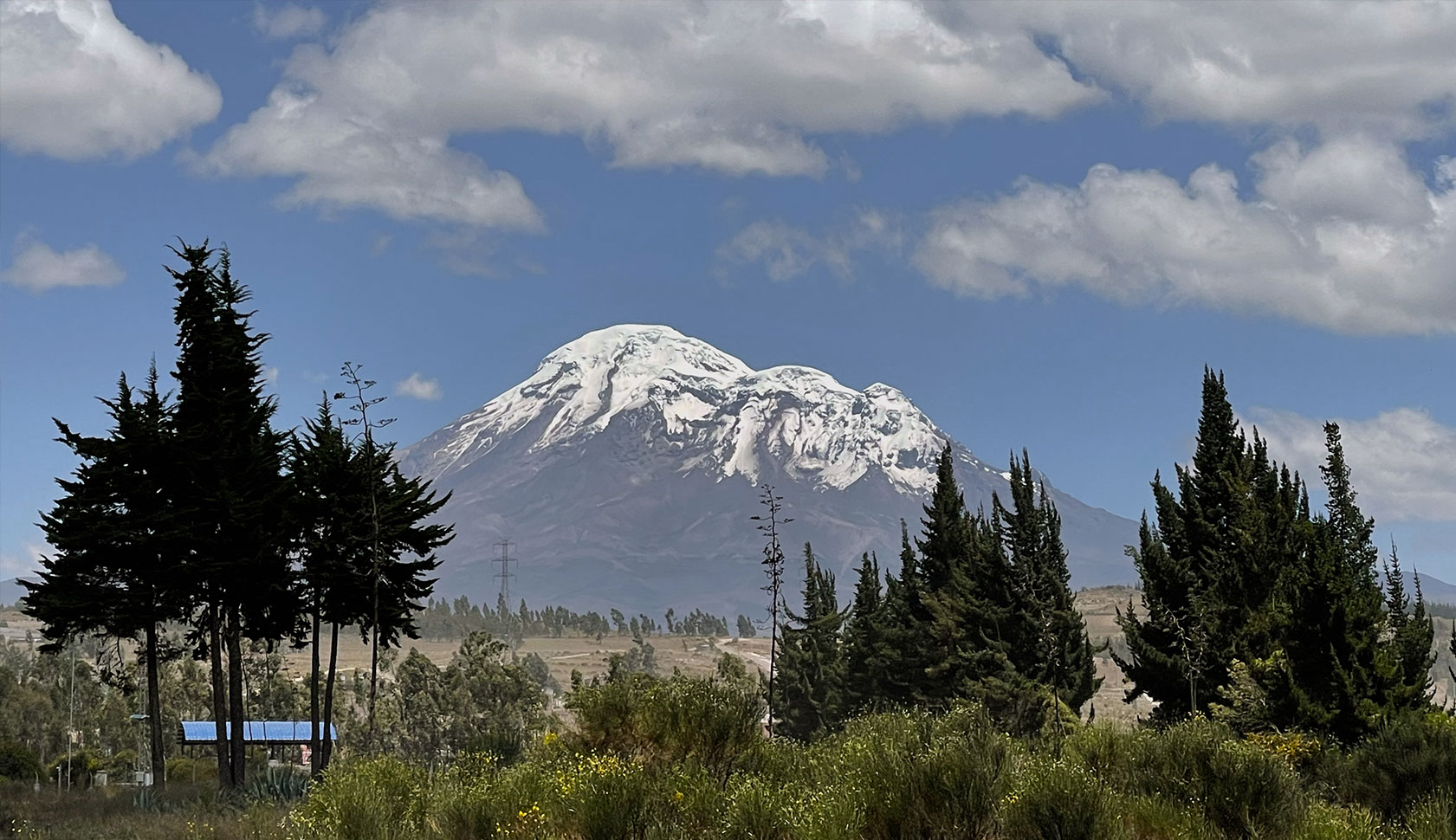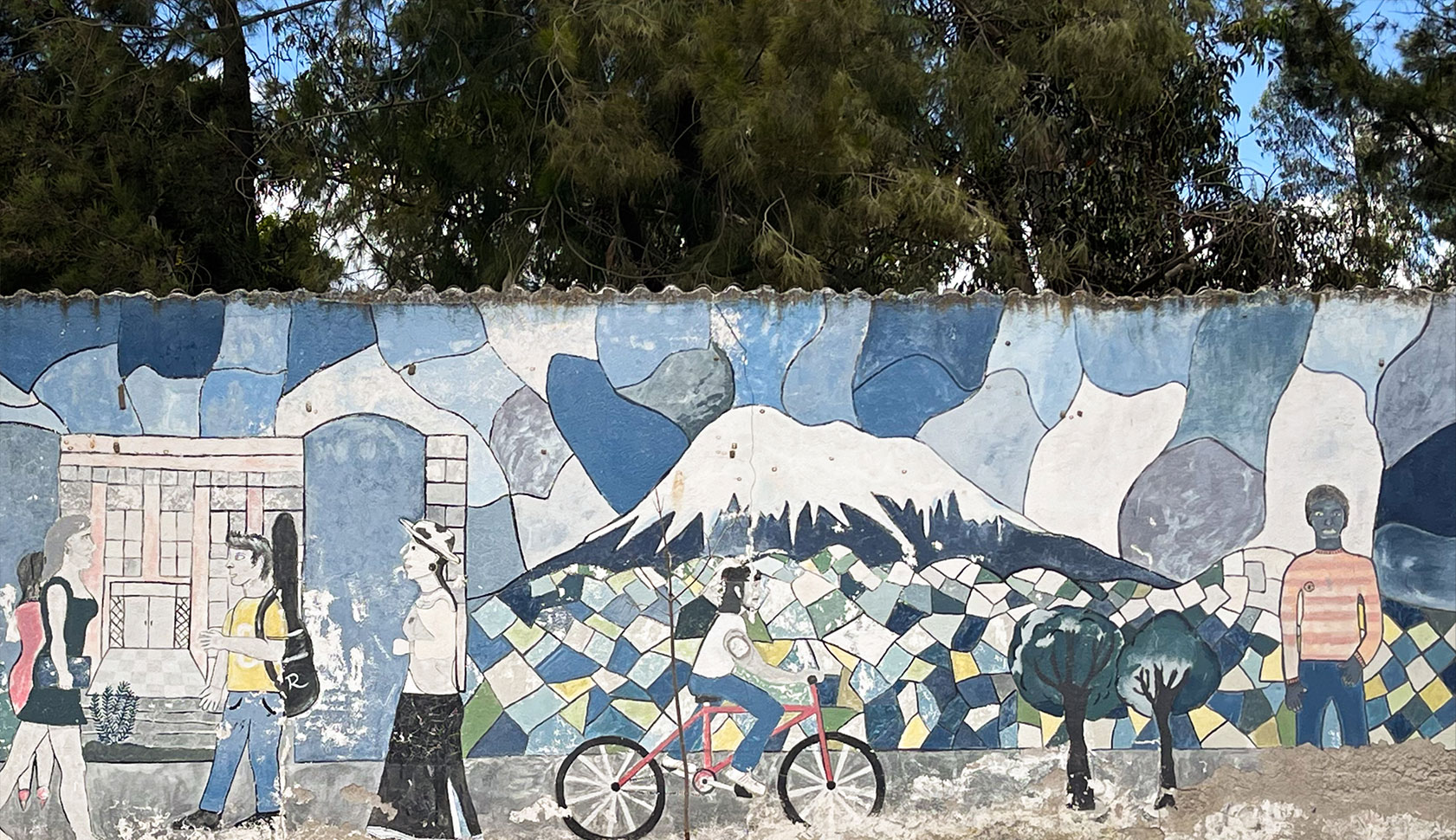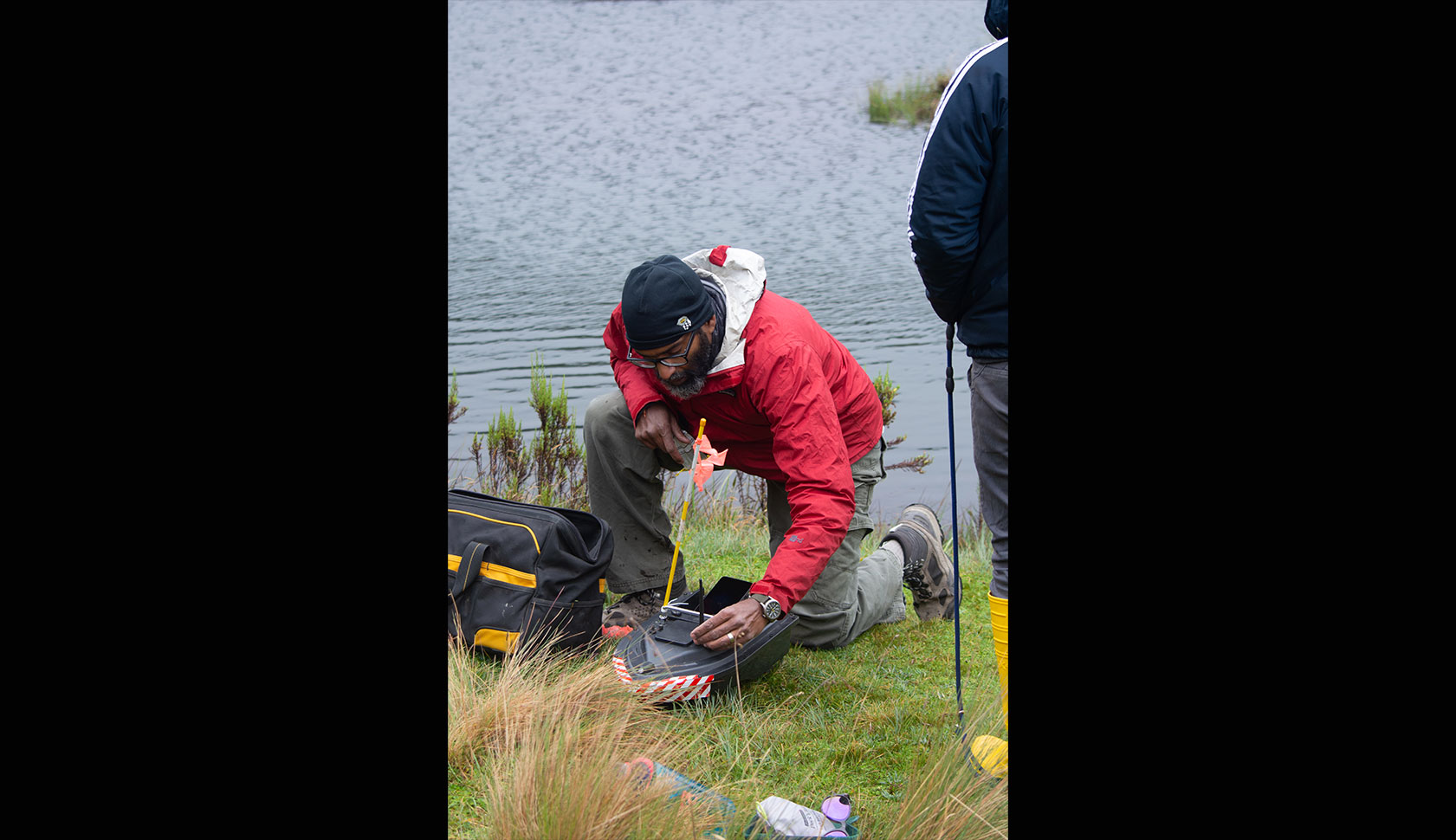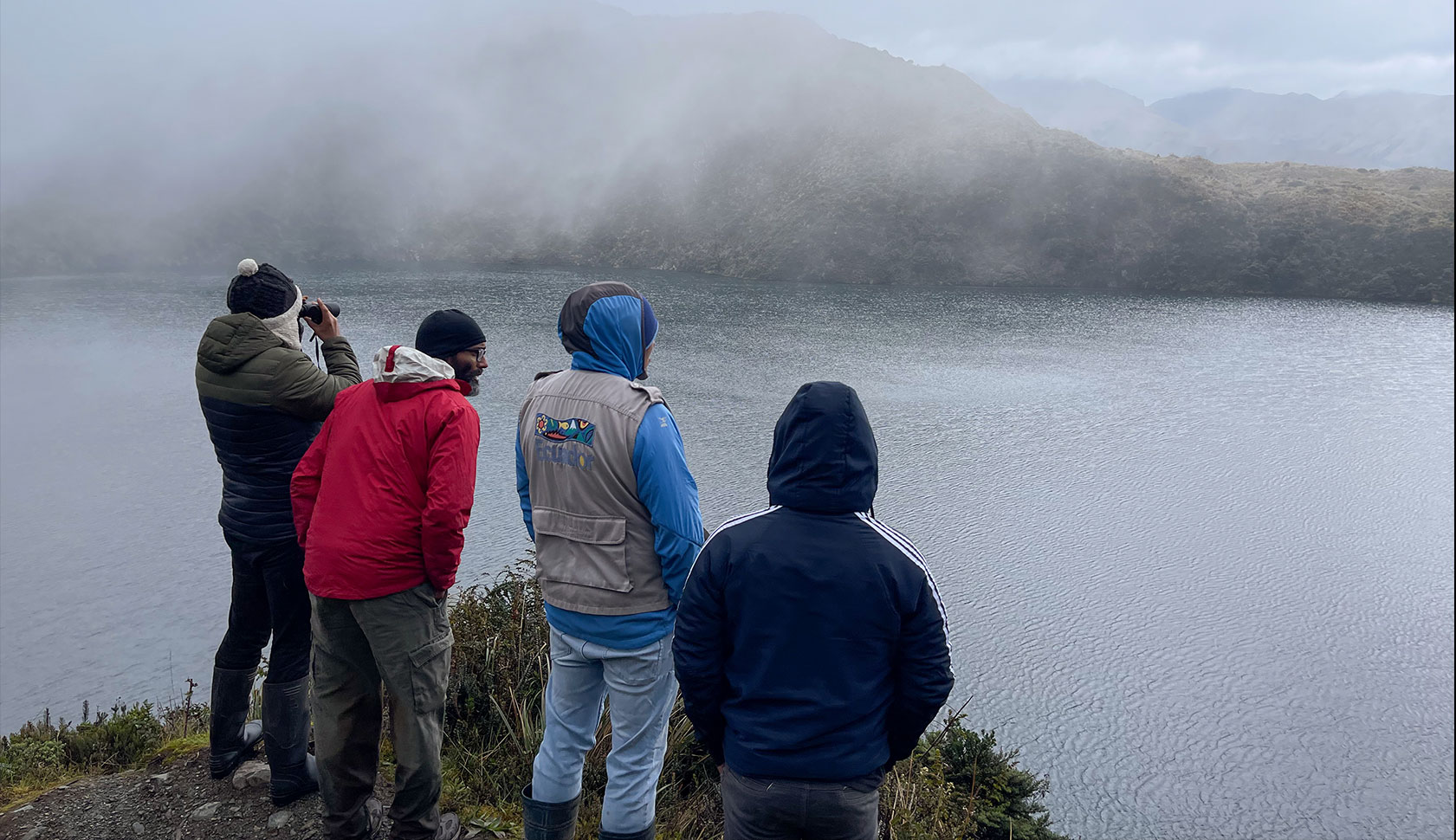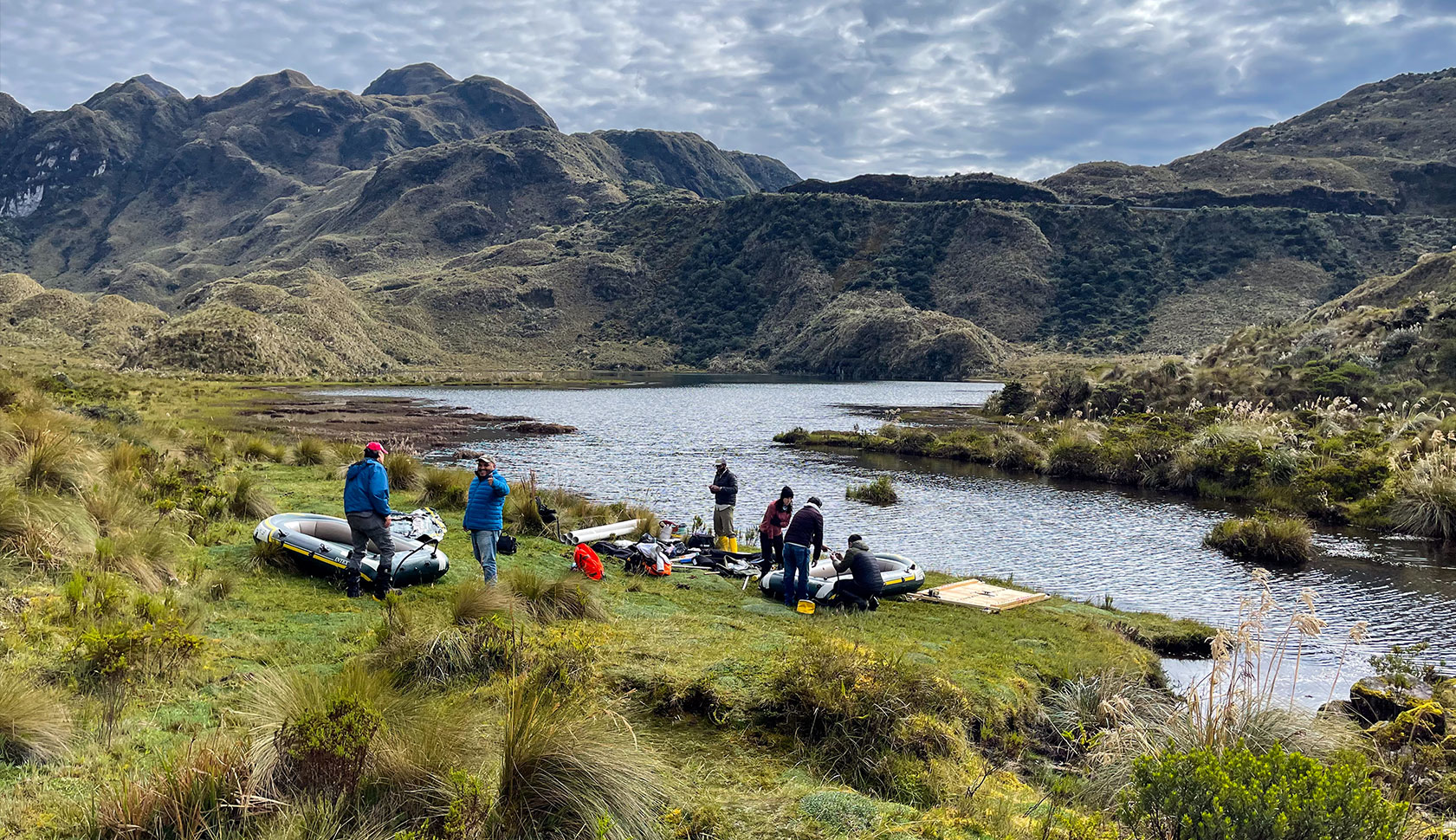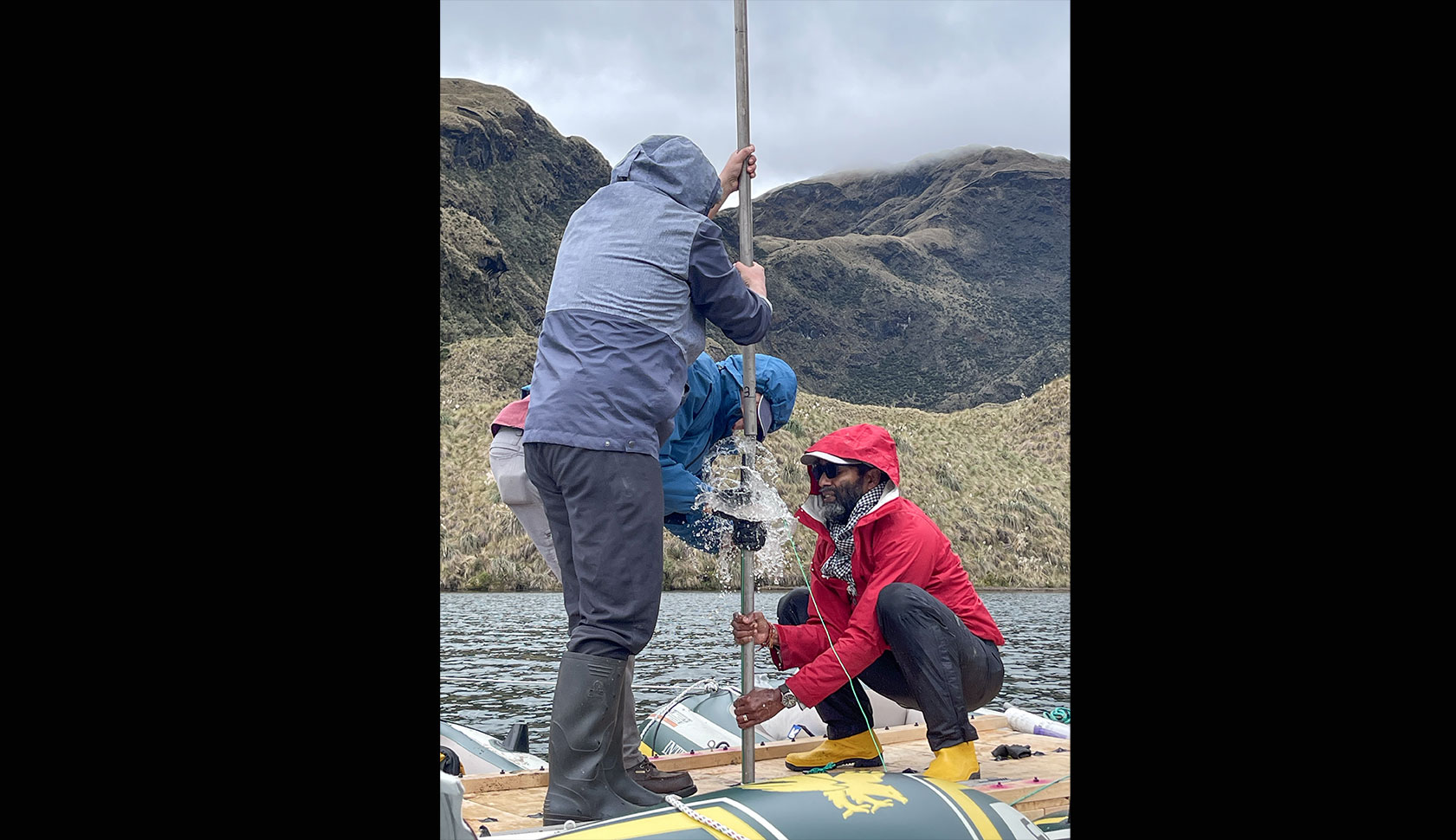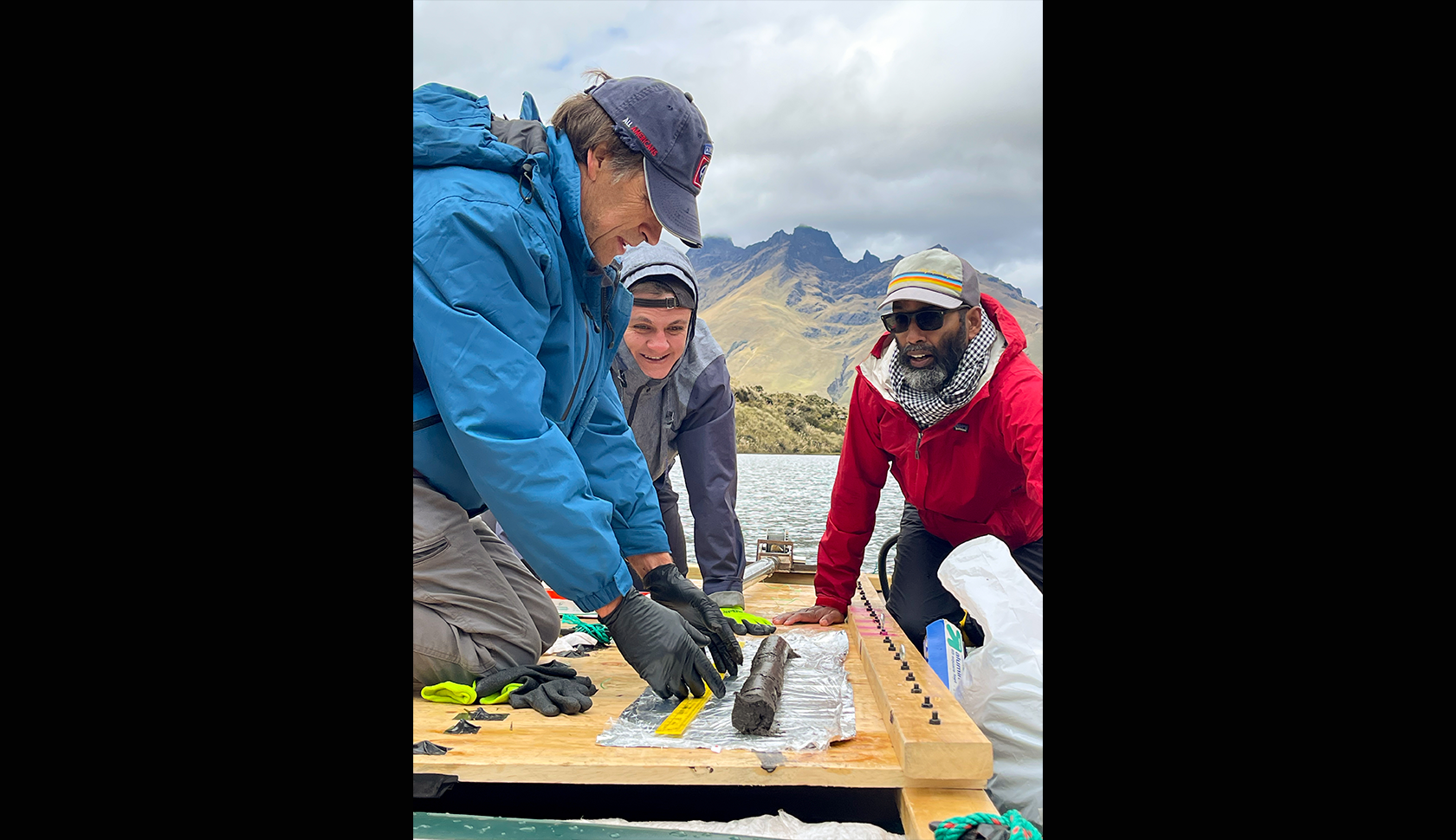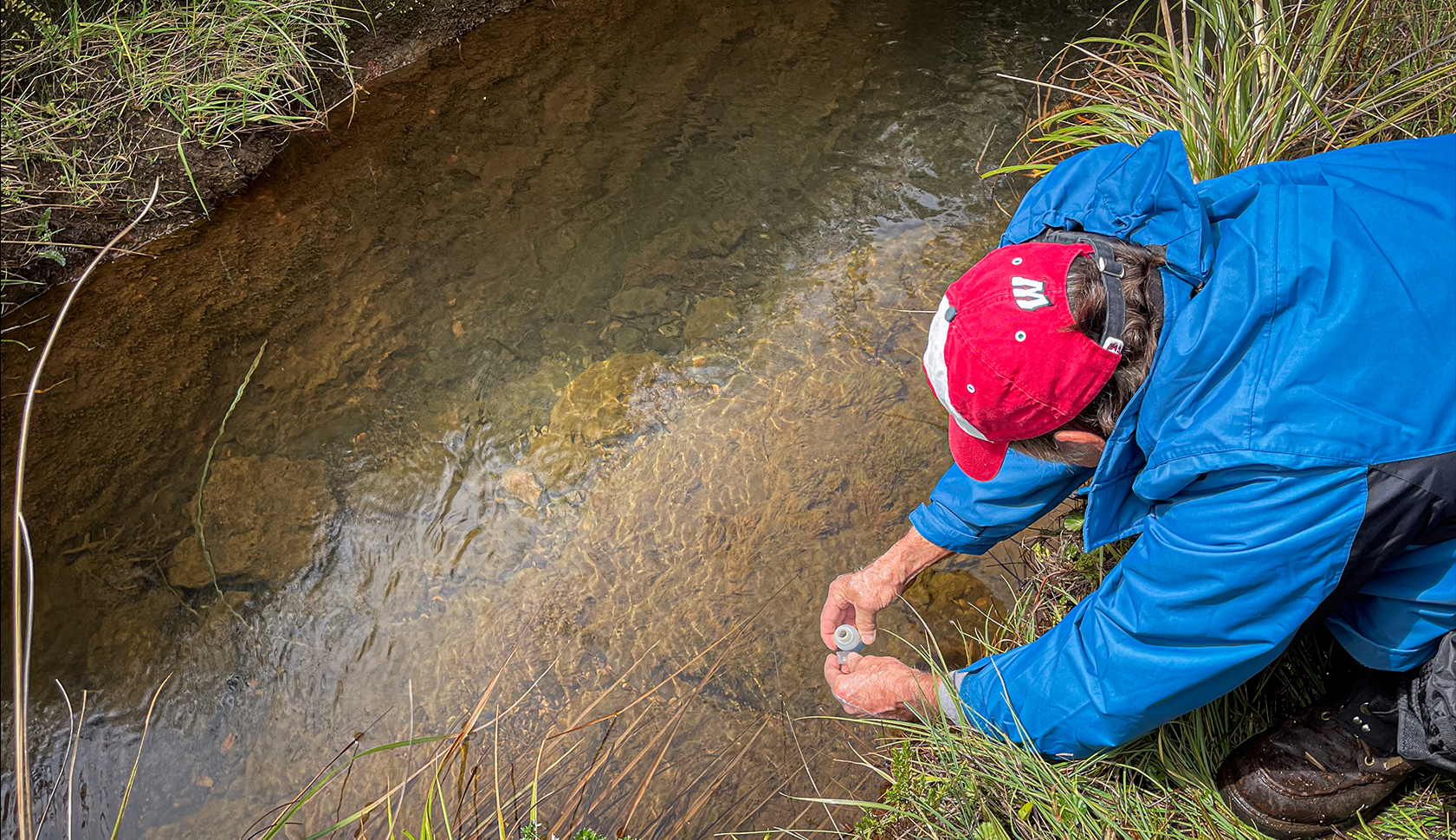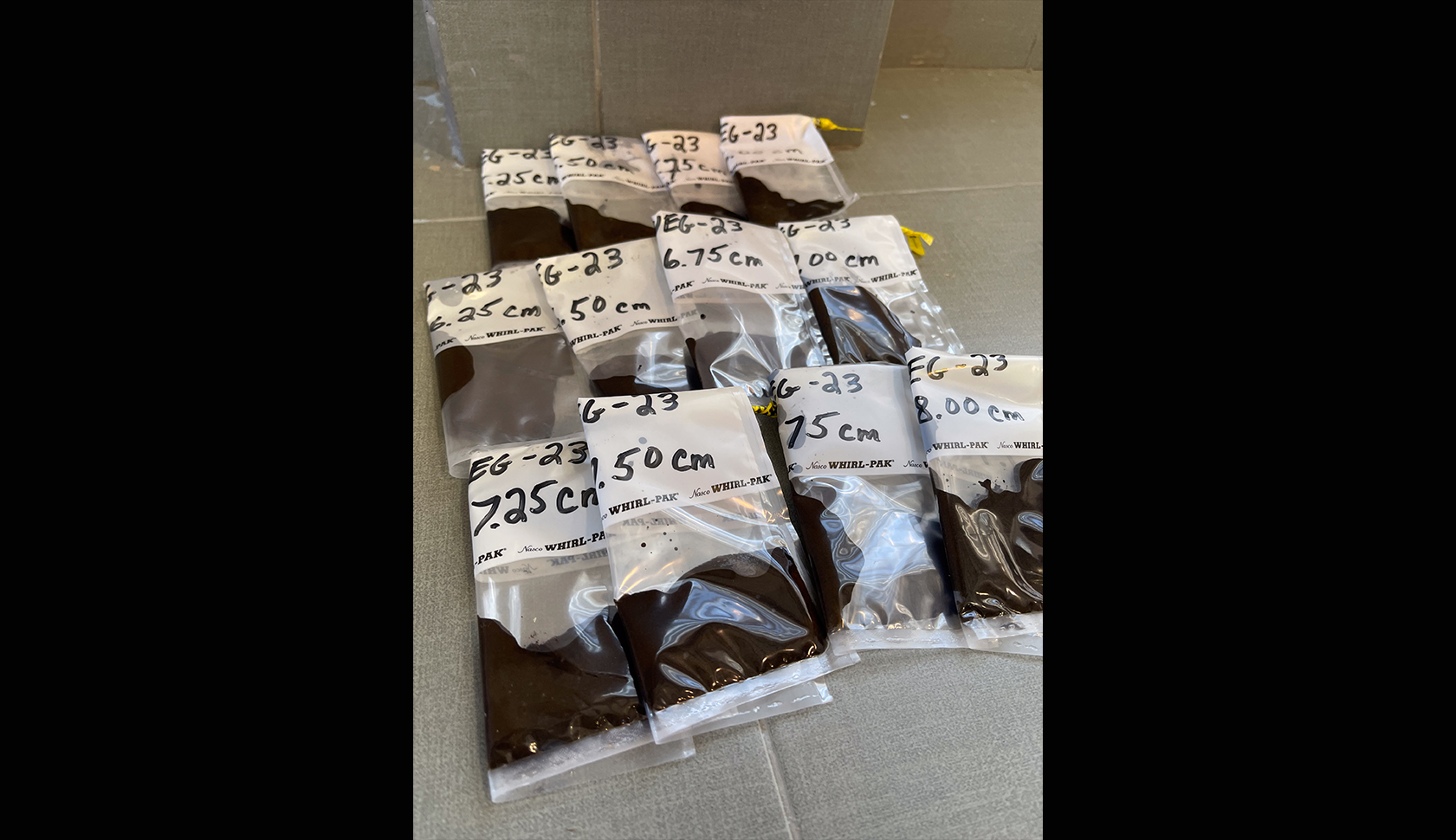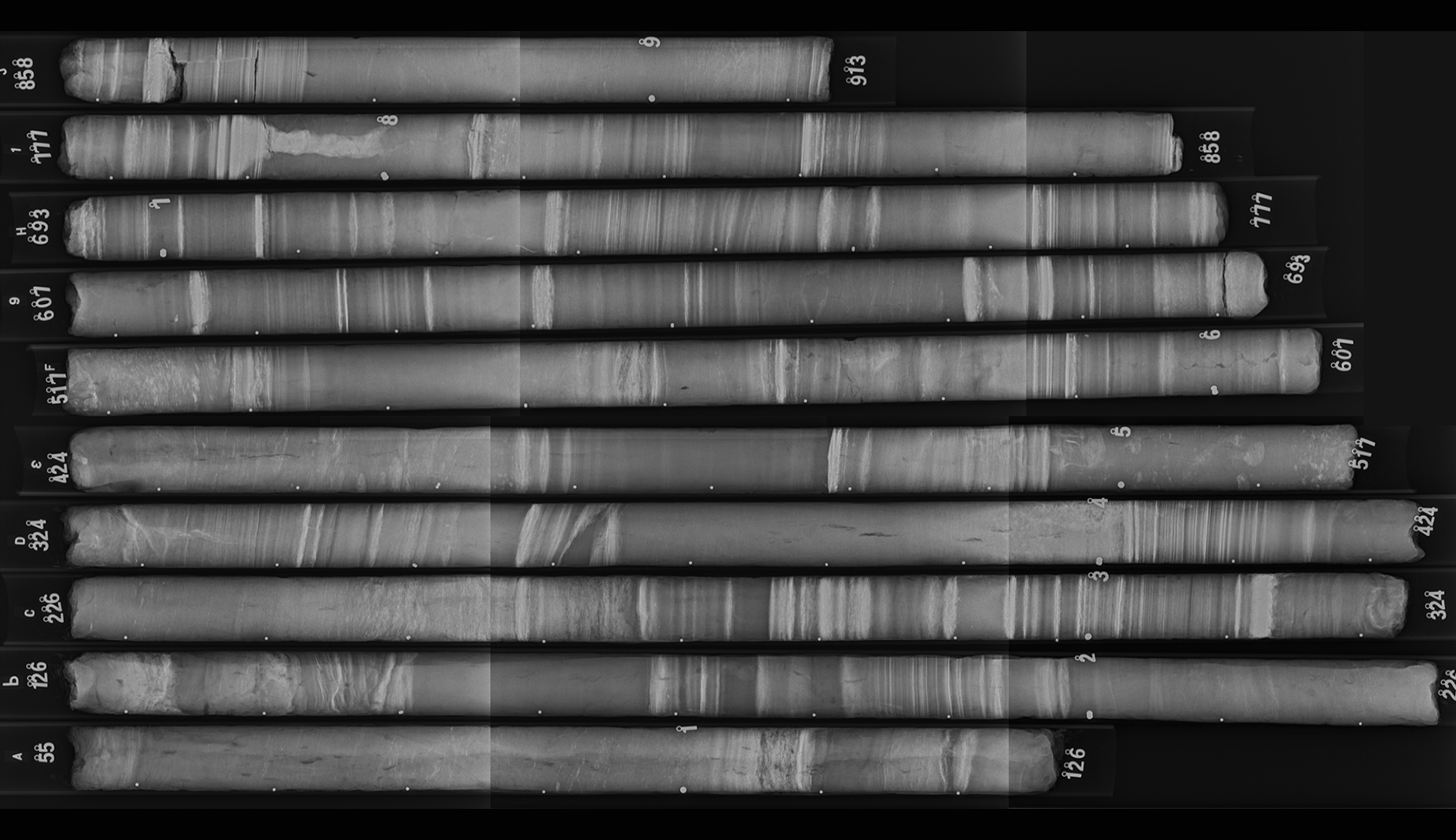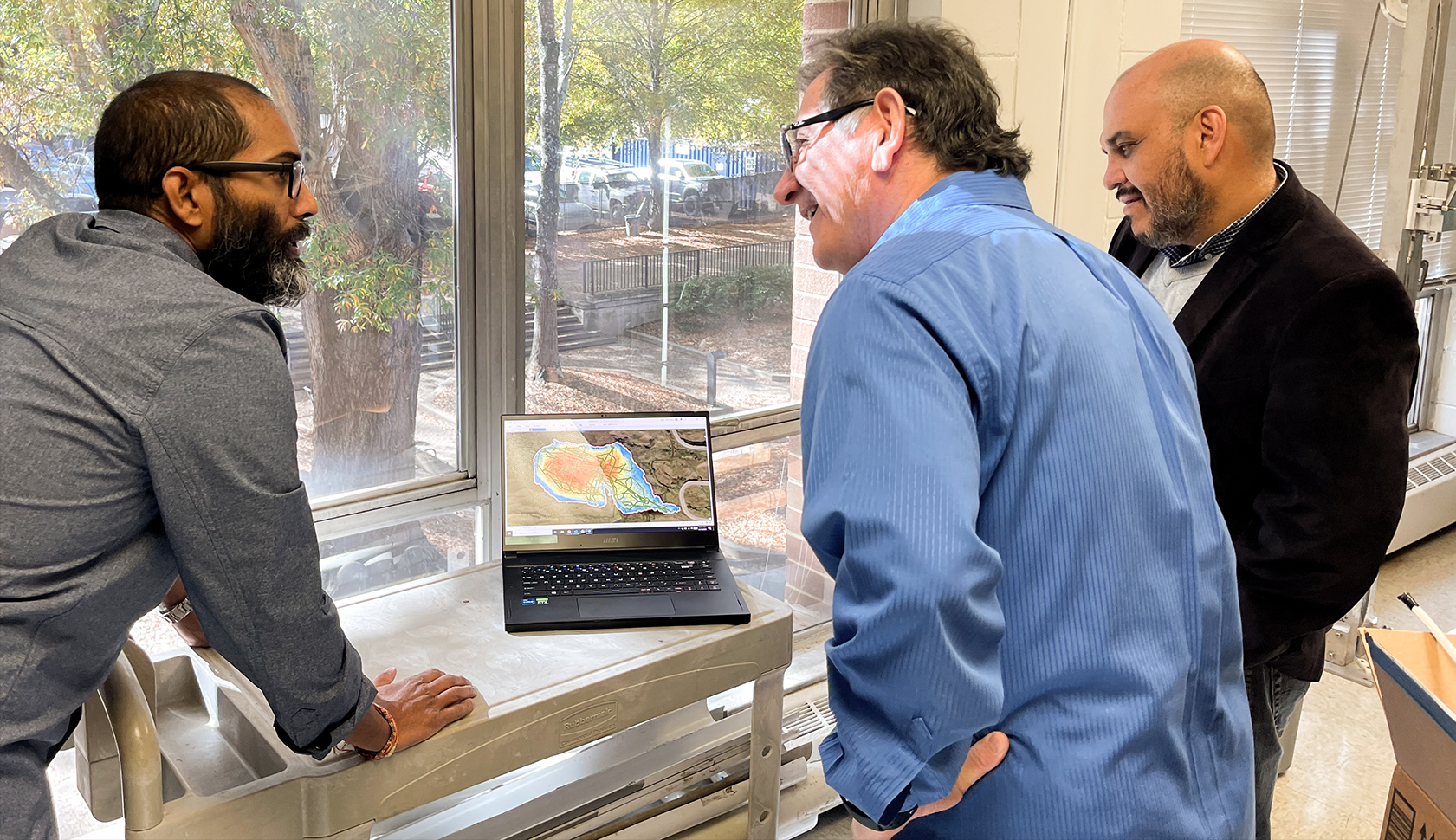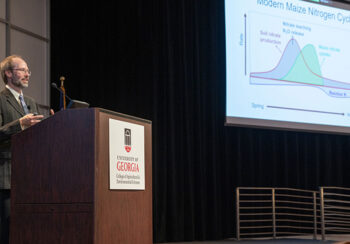Chimborazo Province in Ecuador is a major agricultural center. Changes in freshwater availability and agricultural sustainability affect the province, with important cultural and economic implications for the region.
In September 2023, researchers from the University of Georgia Franklin College of Arts and Sciences Department of Geography traveled to collaborate with local Ecuadorian scientists on an investigation of past environmental conditions in the nearby Andes Mountains. Their goal was to assess regional hydroclimatic variability—changes through time not only in weather and climate, but also the associated ecology and water resources. The work is a component of a formal collaboration between UGA and Escuela Superior Politecnica de Chimborazo (ESPOCH), a science and engineering university in Riobamba, Ecuador.
Geography Professor David Porinchu led the team in collecting sediment and water samples from two lakes within Sangay National Park, providing a snapshot of regional hydroclimatic conditions over the past 5,000 years. Paleoenvironmental records such as sediment cores—like the 30-foot core extracted from Laguna Kuyuk—provide scientists and resource managers with information from a wider range of conditions and scenarios than is available from modern data alone.
Since the team’s return, the UGA team has begun analyzing samples for a suite of physical, chemical, and biological characteristics. The team’s first priorities are to obtain X-ray images and X-ray fluorescence chemistry scans of the intact core and establish dates from as many locations as possible.
Subsequent analyses will utilize small subsections of the cores to understand changes in various time intervals. Results from this initial study will be used to help design broader, regional-scale investigations aimed at unravelling the effects of climate change on natural resources and the largely indigenous populations they support.



